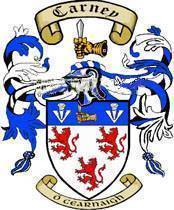
Carney & Wehofer Family
Genealogy Pages
Notes
Matches 12,901 to 12,950 of 13,214
| # | Notes | Linked to |
|---|---|---|
| 12901 | _INET _MHRM 0 _MHSM 0 _RDATE 20 FEB 2022 | BOOS, VVVV (I594769454)
|
| 12902 | _INET _MHRM 0 _MHSM 0 _RDATE 20 FEB 2022 | BOOS, Roman (I594769460)
|
| 12903 | _INET _MHRM 0 _MHSM 0 _RDATE 20 FEB 2022 | BOOS, Luitpold (I594769461)
|
| 12904 | _INET _MHRM 0 _MHSM 0 _RDATE 20 FEB 2022 | BOOS, LLLLL (I594769462)
|
| 12905 | _INET _MHRM 0 _MHSM 0 _RDATE 20 FEB 2022 | BOOS, MMMM (I594769463)
|
| 12906 | _INET _MHRM 0 _MHSM 0 _RDATE 20 FEB 2022 | BOOS, KKK (I594769465)
|
| 12907 | _INET _MHRM 0 _MHSM 0 _RDATE 20 FEB 2022 | BOOS, OOOO (I594769466)
|
| 12908 | _INET _MHRM 0 _MHSM 0 _RDATE 20 FEB 2022 | BOOS, IIII (I594769468)
|
| 12909 | _INET _MHRM 0 _MHSM 0 _RDATE 20 FEB 2022 | BOOS, Georg Michel (I594769469)
|
| 12910 | _INET _MHRM 0 _MHSM 0 _RDATE 20 FEB 2022 | ECKERT, Margareta (I594769470)
|
| 12911 | _INET _MHRM 0 _MHSM 0 _RDATE 20 FEB 2022 | BOOS, Georg Michel (I594769471)
|
| 12912 | _INET _MHRM 0 _MHSM 0 _RDATE 20 FEB 2022 | WOLF, Katharina (I594769472)
|
| 12913 | _INET _MHRM 0 _MHSM 0 _RDATE 20 FEB 2022 | ECKERT, Georg Anton (I594769473)
|
| 12914 | _INET _MHRM 0 _MHSM 0 _RDATE 20 FEB 2022 | SCHWARZ, Helene Katharina (I594769474)
|
| 12915 | _INET _MHRM 0 _MHSM 0 _RDATE 20 FEB 2022 | HEILWECK, Martin (I594769475)
|
| 12916 | _INET _MHRM 0 _MHSM 0 _RDATE 20 FEB 2022 | KAUFMANN, Elisabeth (I594769476)
|
| 12917 | _INET _MHRM 0 _MHSM 0 _RDATE 20 FEB 2022 | HORMUTH, Mathilde (I594769477)
|
| 12918 | _INET _MHRM 0 _MHSM 0 _RDATE 21 JUN 2022 | HOLAND, Charly (I594769346)
|
| 12919 | _INET _MHRM 0 _MHSM 0 _RDATE 21 JUN 2022 | WINGERTER, Olivia (I594769347)
|
| 12920 | _INET _MHRM 0 _MHSM 0 _RDATE 21 JUN 2022 | HERRMANN, Ludwig (I594769349)
|
| 12921 | _INET _MHRM 0 _MHSM 0 _RDATE 21 JUN 2022 | HÄUHSER, Johannes (I594769371)
|
| 12922 | _INET _MHRM 0 _MHSM 0 _RDATE 21 JUN 2022 | REUTHER, Maria Eva (I594769372)
|
| 12923 | _INET _MHRM 0 _MHSM 0 _RDATE 21 JUN 2022 | LENZ, Elisa (I594769380)
|
| 12924 | _INET _MHRM 0 _MHSM 0 _RDATE 21 JUN 2022 | LENZ, Friederika (I594769384)
|
| 12925 | _INET _MHRM 0 _MHSM 0 _RDATE 21 JUN 2022 | LENZ, Andreas (I594769386)
|
| 12926 | _INET _MHRM 0 _MHSM 0 _RDATE 21 JUN 2022 | LENZ, Barbara (I594769387)
|
| 12927 | _INET _MHRM 0 _MHSM 0 _RDATE 21 JUN 2022 | LENZ, Johann Adam (I594769388)
|
| 12928 | _INET _MHRM 0 _MHSM 0 _RDATE 23 AUG 2022 | SCHINTZLER, Hertha (I594769392)
|
| 12929 | _INET _MHRM 0 _MHSM 0 _RDATE 23 AUG 2022 | HOOCK, Christian (I594769393)
|
| 12930 | _INET _MHRM 0 _MHSM 0 _RDATE 23 AUG 2022 | HOOCK, Barbara (I594769394)
|
| 12931 | _INET _MHRM 0 _MHSM 0 _RDATE 23 AUG 2022 | HOOCK, Martina (I594769395)
|
| 12932 | _INET _MHRM 0 _MHSM 0 _RDATE 23 AUG 2022 | WINGERTER, Klara (I594769398)
|
| 12933 | _INET _MHRM 0 _MHSM 0 _RDATE 23 AUG 2022 | THEIS, Sonja (I594769401)
|
| 12934 | _INET _MHRM 0 _MHSM 0 _RDATE 23 AUG 2022 | THEIS, Dieter (I594769402)
|
| 12935 | _INET _MHRM 0 _MHSM 0 _RDATE 23 AUG 2022 | GUTTING, Theresia (I594769403)
|
| 12936 | _INET _MHRM 0 _MHSM 0 _RDATE 23 AUG 2022 | THEIS, Michael (I594769404)
|
| 12937 | _INET _MHRM 0 _MHSM 0 _RDATE 23 AUG 2022 | THEIS, Otto (I594769405)
|
| 12938 | _INET _MHRM 0 _MHSM 0 _RDATE 23 AUG 2022 | Klara (I594769406)
|
| 12939 | At least one living or private individual is linked to this note - Details withheld. | EICHSTÄDTER, Erna (I594769309)
|
| 12940 | _INET _MHRM 0 _MHSM 1 _MHAV adds birthdate _RDATE 20 FEB 2022 | EICHSTÄDTER, Ronald (I594769310)
|
| 12941 | At least one living or private individual is linked to this note - Details withheld. | EICHSTÄDTER, Rene (I594769311)
|
| 12942 | At least one living or private individual is linked to this note - Details withheld. | HURST, Werner (I594769261)
|
| 12943 | At least one living or private individual is linked to this note - Details withheld. | HURST, Joachim "Jockel" (I594769264)
|
| 12944 | _INET _MHRM 0 _MHSM 1 _MHAV adds father,adds mother,adds middlename,adds sibling _RDATE 20 FEB 2022 | HERRMANN, Maria (I594769428)
|
| 12945 | _INET _MHRM 0 _MHSM 1 _RDATE 20 FEB 2022 | EICHSTÄDTER, Claudia (I594769306)
|
| 12946 | _INET _MHRM 0 _MHSM 1 _RDATE 21 JUN 2022 _MHAV adds burialplace | WINGERTER, Lea (I594769326)
|
| 12947 | _INET _MHRM 0 _MHSM 1 _RDATE 21 JUN 2022 | BAST, Rita (I594769344)
|
| 12948 | _INET _MHRM 0 _MHSM 1 _RDATE 21 JUN 2022 | BAST, Alfred (I594769345)
|
| 12949 | _INET _MHRM 0 _MHSM 4 _MHAV adds burialplace,adds spouse,adds child _RDATE 23 AUG 2022 | HOOCK, Helga (I594769389)
|
| 12950 | _INET _MHRM 1 _MHSM 0 _MHAV adds story _RDATE 20 FEB 2022 | BOOS, Jacob (I594769439)
|
